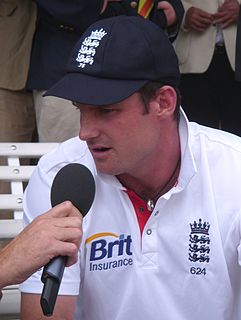A Quote by Roisin Conaty
I think I've got an Irish sensibility for language - I like how people talk. I'm not saying I've got it, but I'm obsessed with the way they use language, like they use a swear word very poetically.
Related Quotes
I believe that we must use language. If it is used in a feminist perspective, with a feminist sensibility, language will find itself changed in a feminist manner. It will nonetheless be the language. You can't not use this universal instrument; you can't create an artificial language, in my opinion. But naturally, each writer must use it in his/her own way.
The majority of the people of the world today are unsane, not insane, unsane meaning having been exposed to methods of evaluation that have long rendered obsolete, our language in the future will change to a saner language where we have no argument in it, 'can there be such a language?' there is, when engineers talk to each other, it's not subject to interpretation, they use math, they use descriptive systems, if I interpreted what another engineer said in the way I think he meant it: you couldn't build bridges, dams, power transmission lines. The language has to have meaning
There is a narrow class of uses of language where you intend to communicate. Communication refers to an effort to get people to understand what one means. And that, certainly, is one use of language and a social use of it. But I don't think it is the only social use of language. Nor are social uses the only uses of language.
I'd always wanted to do a weekly strip, or a strip that was in installments like that. It's been fun trying to figure out how to make that work. Their standards are so prissy that they won't allow me to use all kinds of language. Not only can you not swear, this morning I was informed I couldn't use the word "schmuck." I couldn't use "crap," "schmuck," or "get laid." Those three were beyond the pale. But you get around that, and it comes out better. I can't quite explain why.
I feel like in the reading I did when I was growing up, and also in the way that people talk and tell stories here in the South, they use a lot of figurative language. The stories that I heard when I was growing up, and the stories that I read, taught me to use the kind of language that I do. It's hard for me to work against that when I am writing.
Some feminist critics debate whether we take our meaning and sense of self from language and in that process become phallocentric ourselves, or if there is a use of language that is, or can be, feminine. Some, like myself, think that language is itself neither male nor female; it is creatively expansive enough to be of use to those who have the wit and art to wrest from it their own significance. Even the dread patriarchs have not found a way to 'own' language any more than they have found a way to 'own' earth (though many seem to believe that both are possible).
We're trying to be very careful and precise in our use of language, because I think the language we use and the images we project really do have resonance. It's the reason why I don't use the term jihadist to refer to terrorists. It gives them the religious legitimacy they so desperately seek, but I ain't gonna give it to them.
What happens when you speak colloquial Hebrew is you switch between registers all the time. So in a typical sentence, three words are biblical, one word is Russian, and one word is Yiddish. This kind of connection between very high language and very low language is very natural, people use it all the time.
What's great is we actually have friends who belong or have previously belonged to the Amish community, so we got first hand stories and I was able to talk with them about visitors and visiting the Amish country. It was very enlightening to think this is very much going on as we speak. What was really interesting was that the upcoming Amish generation is actually closer to average American teenager in their use of the English language because of the use of technology.

































